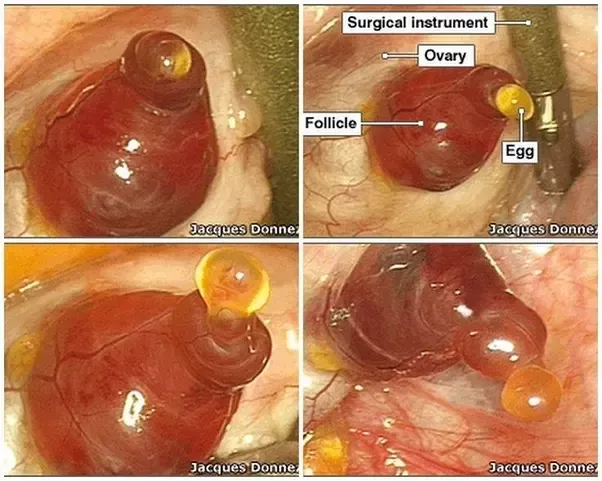When Do You Get Ovulation Symptoms
If you are planning to conceive it is important that you understand more about ovulation symptoms.
When do you get ovulation symptoms. Mcclure 13 june 2017. Not having symptoms doesn t mean you aren t ovulating. The increase in temperature is the sign that ovulation has just occurred. Even easier is an ovulation kit which pinpoints your fertility window by detecting a surge in luteinising hormone lh which kicks off just before you ovulate.
As you get closer to ovulation you may have a slight decline but it will be followed by a sharp increase after ovulation. Ovulation symptoms don t occur in every woman who ovulates. These include in no particular order. The most fertile cervical mucus resembles raw egg whites.
Ovulation occurs when a mature egg is released from an ovarian follicle. It is important for any woman trying to get pregnant to be familiar with their ovulation cycle. Whether a woman is trying to get pregnant or trying to avoid a pregnancy the 2 week wait can be frustrating. Use the ovulation calculator.
Ovulation pain or mittelschmerz. After ovulation high progesterone levels cause cervical mucus to quickly dry up. Before you get out of bed speak or have anything to eat or drink. But if ovulation pain is persistent or severe see a doctor to rule out conditions such as endometriosis or an ovarian cyst.
The most uncomfortable ovulation symptom for some women is ovulation pain or mittelschmerz a german word meaning mid mittel pain schmerz. According to comprehensive gynecology the chance of getting pregnant peaks when intercourse occurs on the day of ovulation or up to 2 days before ovulation. There are several ovulation symptoms you might notice. This will help you plan your pregnancy better.
You can buy these special thermometers from most chemists and online. Some women track their ovulation by looking out for physical symptoms or using. Tracking your basal body temperature accurately over a few months can help you predict when ovulation is going to occur. Get an ovulation kit.
If you have a 28 day cycle ovulation will occur. Moore suggests monitoring and recording your ovulation symptoms every month to get a sense of what is normal for your body so you can more easily spot any abnormal ovulation signs and symptoms. You should notice your cervical mucus getting more slippery and clear as you approach ovulation. The closer you get to ovulation the higher the water content of your mucus.
For women who plan to get pregnant knowing when ovulation will occur is critical.
